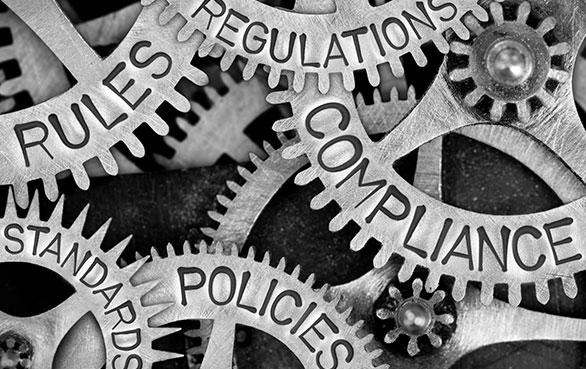COVID-19 Guide to Leave, Testing and Isolation Requirements
Navigating changes in employment legislation related to Covid-19 has been difficult for many business owners across Australia.
As COVID-19 hospitalisation/ ICU numbers decrease and vaccination numbers increase, the NSW Government is committed to easing restrictions, including no longer needing to wear masks in offices from Friday 25 February 2022. Although testing and isolation requirements have been in place across each State for some time now, with many employees returning to work in communal office environments in NSW it will remain important for employers to have access to up-to-date Covid-19 related processes and leave options.
The below information provides a guide regarding leave, testing and isolation requirements to support you in managing your employees. For assistance in resolving employee-related queries or situations which are not covered below, please get in touch with our HR Consultants for support on 1300 675 393 or at [email protected].
Illness
Employees should stay home if they have cold symptoms, such as coughing/fever/sore throat/shortness of breath/loss of taste or smell or other symptoms of COVID‑19.
If employees develop symptoms while at work, they should be directed to:
- separate themselves from other employees;
- notify their manager; and
- make arrangements to go home immediately.
If employees are unfit for work due to symptoms, they can access their Personal (Sick/Carer’s) Leave. If the symptoms are mild, employees may request to continue working from home and this may or may not be suitable depending on their position and specific situation.
Close contact of COVID-19 positive
If your employee is notified that they are a close contact of a person with COVID-19, advise them to separate themself from other employees, notify their manager and make arrangements to go home immediately. You can advise them to follow the Testing and Isolation Rules that apply in your state as per the table below.
Confirmed Case of COVID-19
If an employee tests positive for COVID-19 they should self-isolate immediately and notify their manager. You can advise them to follow the Testing and Isolation Rules that apply in your state as per the table below.
Employees should follow all medical advice to recover from their infection as soon as possible. Employers must take the necessary steps to determine possible exposure to COVID-19 by colleagues in the workplace and undertake appropriate sanitisation and quarantine if necessary. Employees may return to the office only in accordance with advice from the relevant health authorities in each State or Territory.
If an employee has contracted the virus (or has caring responsibilities for someone who has contracted the virus) and has consequently fallen ill, they will be entitled to Personal (Sick/Carer’s) Leave. An employer’s standard Notice and Evidence requirements will apply.
Quarantining or Self-Isolating
Employees may be required to quarantine or self-isolate, and consequently not be able to work, for a number of different reasons, including but not limited to:
- contracting the COVID-19 virus;
- an enforceable government direction;
- a government-imposed travel restriction; or
- a lawful and reasonable direction made by the employer to get tested which has led to a quarantine/self-isolation period.
Payment during Self-Isolation Period:
- If an employee is unwell and unfit to work (or caring for a family or household member who is unwell) during the quarantine/self-isolation period they will be eligible for paid personal (sick/carer’s) leave (full-time/part-time employee) or unpaid personal (sick/carer’s) leave (casual employee)
- If an employee is fit to work and has the capacity to continue to work during their quarantine or self-isolation period (which will be dependent on their role and eligibility to work from home), they will continue to be paid for the work they are doing.
- If an employee is fit and able to work, however cannot continue to safely perform work whilst quarantining at home, they may have other paid or unpaid leave options or other flexible work arrangements available to them, including:
- access to untaken paid Annual Leave entitlements
- access to paid Long Service Leave entitlements (as applicable)
- access to Unpaid Pandemic Leave for up to 2 weeks (this entitlement is only available to certain award covered employees – see below for further information)
- access to Leave Without Pay
- access to Pandemic Leave Disaster Payment through the Government for eligible employees (see below for further information)
- other flexible work arrangements, such as an agreement to work to make up time upon conclusion of the isolation period
Unpaid Pandemic Leave – Award covered employees
Most Awards have been temporarily amended to give employees access to Unpaid Pandemic Leave. Two weeks of unpaid pandemic leave is available to all employees (including casuals). The employee will not receive payment, however, any time taken under this leave type will count as service and the employee will continue to accrue paid leave entitlements as if they were working.
Note: Unpaid Pandemic Leave does not apply to non-award covered employees.
Pandemic Leave Disaster Payment:
If any employee cannot work and earn an income, has no sick leave entitlements and has been directed to self-isolate or quarantine or needs to care for someone who needs to self-isolate or quarantine they may be eligible for the government funded Pandemic Leave Disaster Payment. There are eligibility criteria for the lump sum payment. Further details can be found here: https://www.servicesaustralia.gov.au/pandemic-leave-disaster-payment
State and Territory Testing and Isolation Rules
- NSW / ACT / VIC / QLD: The Eastern States of Australia reached agreement on 5 January 2021 on COVID-19 Test & Isolate National Protocols which can be found here: https://www.health.gov.au/news/updated-covid-19-test-and-isolate-national-protocols
- WA: Testing https://www.healthywa.wa.gov.au/Articles/A_E/Coronavirus/COVID19-testing
- SA: Testing and isolation https://www.sahealth.sa.gov.au/wps/wcm/connect/public+content/sa+health+internet/conditions/infectious+diseases/covid-19/testing+and+tracing/test%2c+trace%2c+isolate+and+quarantine
- NT: Testing https://coronavirus.nt.gov.au/stay-safe/symptoms-testing
- TAS: Isolation https://www.coronavirus.tas.gov.au/travellers-and-visitors/quarantine-and-isolation-directions/isolation
Our experienced HR Consultants are available to support you with any employee-related questions. Please get in touch with us today on 1300 675 393 or at [email protected].







